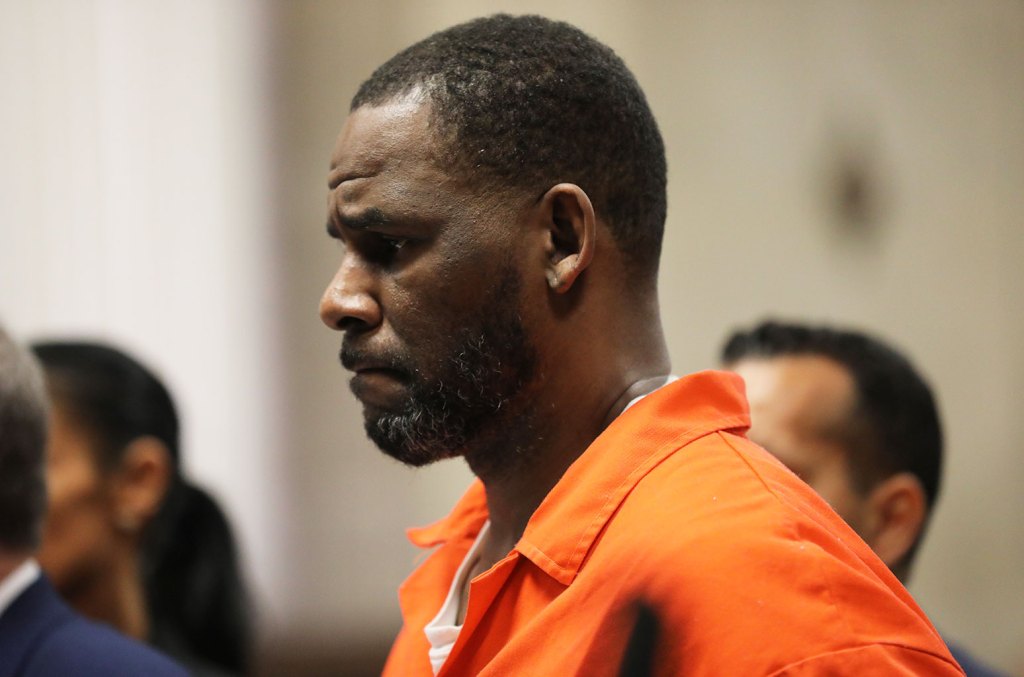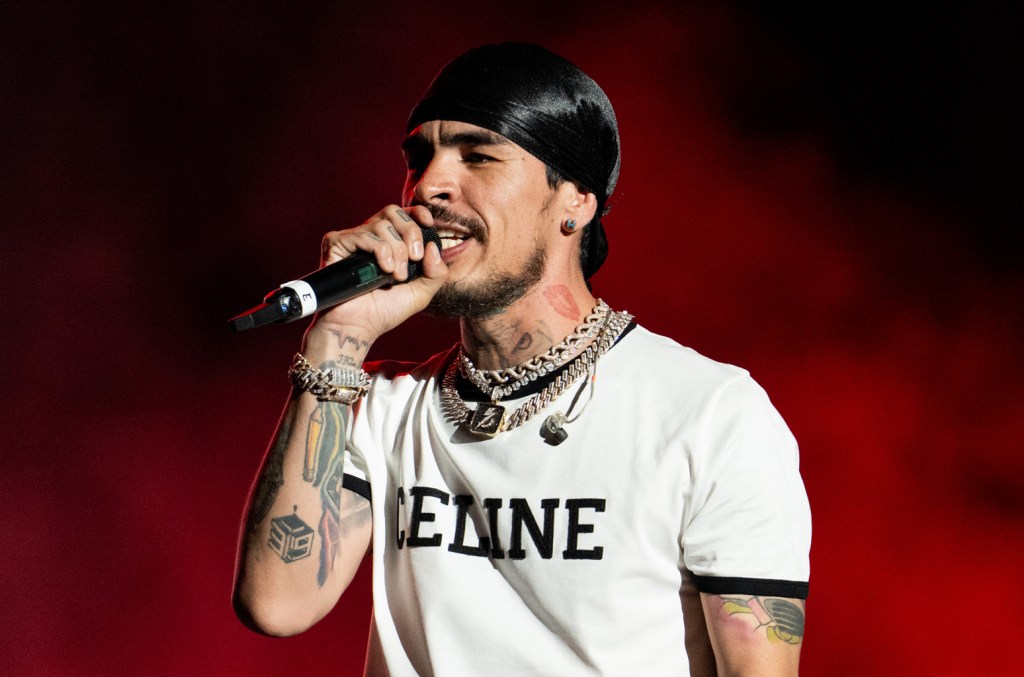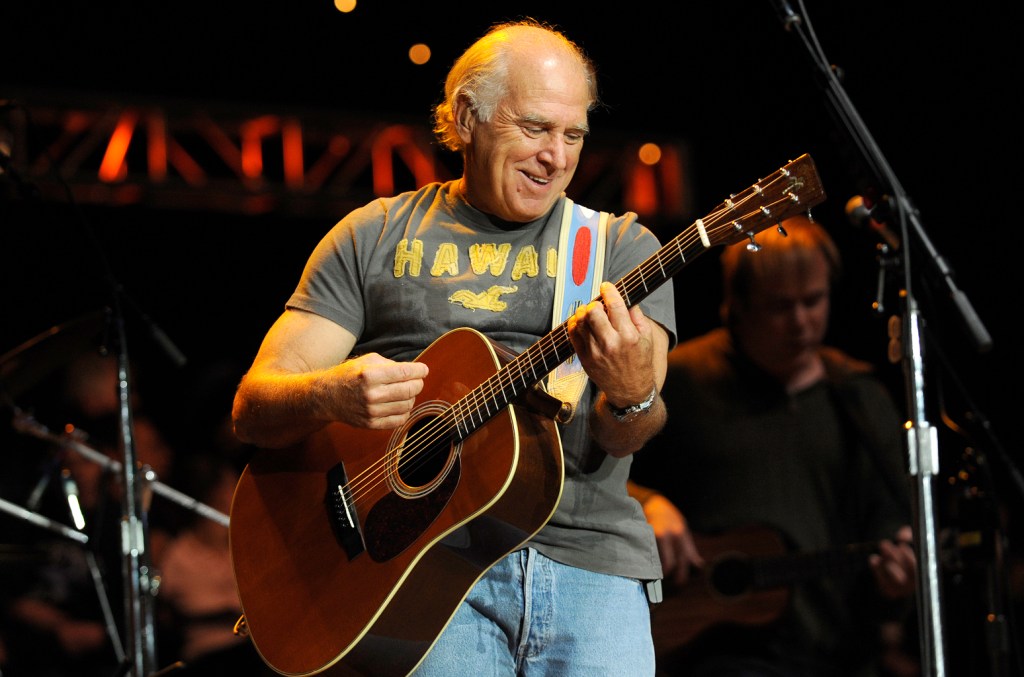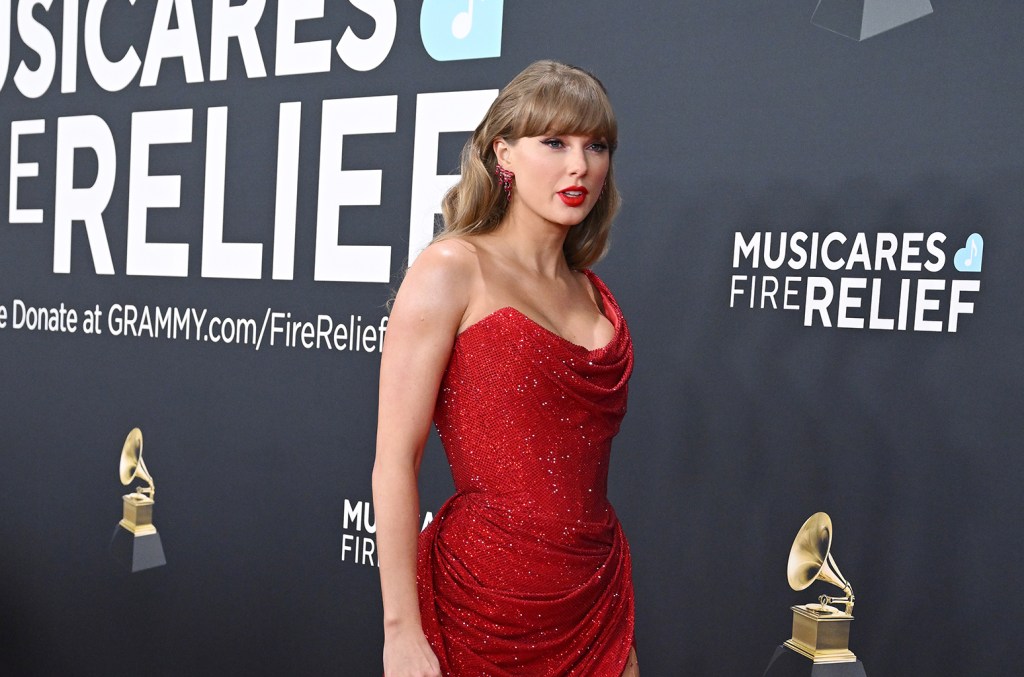Legal
Page: 12
Scooter Braun has been subpoenaed in Blake Lively’s sexual harassment and retaliation lawsuit over the movie It End With Us, with the actress seeking to find out what the music mogul knows about co-star Justin Baldoni’s alleged smear campaign against her.
Deadline first reported that Braun’s company, HYBE America, was notified of subpoenas on Tuesday (June 10), and that Lively plans to serve the document requests on Thursday (June 12). Billboard learned via a source familiar with the matter that the Lively camp subpoenaed both HYBE America and its CEO, Braun, personally.
Lively claims in her lawsuit that Baldoni enlisted crisis PR maven Melissa Nathan to seed negative press coverage of the actress in retaliation for her reporting sexual harassment on the set of It Ends With Us. Lively is now seeking any materials about this alleged smear campaign that are in the possession of Braun and HYBE America, which reportedly owns a controlling stake in Nathan’s company, The Agency Group PR.
Trending on Billboard
Billboard reached out to reps for Lively, HYBE America, Braun and Baldoni for comment. Billboard also reached out to Nathan for comment.
Lively’s subpoena on Braun follows Baldoni’s attempt to serve his own document subpoena on Taylor Swift, a close friend of Lively and public opponent of Braun. Swift and Braun’s feud stems from Braun’s 2019 purchase of the pop superstar’s Big Machine masters, which she bought back last month.
Swift’s reps fiercely criticized her subpoena, saying she was not involved in It Ends With Us and that Baldoni was merely trying to “use Taylor Swift’s name to draw public interest by creating tabloid clickbait instead of focusing on the facts of the case.” Baldoni ultimately dropped the Swift subpoena.
The messy It Ends With Us litigation began in December, when Lively sued Baldoni, claiming sexual harassment and retaliation. Baldoni quickly countersued, claiming the actress, her husband Ryan Reynolds and publicist Leslie Sloane had fabricated the claims and that Lively unfairly seized control over the movie he directed.
A federal judge dismissed Baldoni’s countersuit as legally deficient on Monday (June 9), allowing him to amend breach of contract claims but permanently tossing out his defamation allegations. The dispute is on track to go to trial in 2026.
Karol G and Universal Music Group (UMG) are firing back at a copyright lawsuit over a track from her chart-topping Mañana Será Bonito – including arguing that a producer’s Instagram comment about the alleged similarities was posted “sarcastically” and wasn’t an admission of guilt.
The case, filed earlier this year, claims that the singer (Carolina Giraldo Navarro) and her co-writers stole key elements of her 2022 song “Gatúbela” from an earlier track called “Punto G,” released by producers Ocean Vibes (Jack Hernandez) and Alfr3d Beats (Dick Alfredo Caballero Rodriguez).
But in their first response to the case on Tuesday, Karol G and Universal Music Group flatly denied all of the lawsuit’s allegations. They said a musicologist report cited by the accusers, which claimed the songs were “extremely similar,” was “biased” and “patently improper.”
Trending on Billboard
“Defendants deny that they have interpolated, sampled, used, or copied plaintiffs’ work,” the Colombian star’s lawyers write. They also say they’ll be able to prove that “Gatúbela” was “independently created,” which could mean they have evidence that Karol G’s song was actually created first.
Released in February 2023, Mañana Será Bonito was a critical and commercial success, winning album of the year at the Latin Grammy Awards and reaching No. 1 on the Billboard 200 — the first all-Spanish language album by a woman to do so. “Gatúbela” was a hit in its own right, reaching No. 37 on the Billboard Hot 100 and No. 4 on the Hot Latin Songs chart.
Hernandez and Rodriguez sued in March, claiming they “immediately recognized” the song’s similarities to “Punto G,” which they say was released two months earlier: “By every method of analysis, ‘Gatúbela’ is a forgery.”
In one passage, the lawsuit cited an Instagram exchange in which Alfr3d confronted one of Karol’s producers (DJ Maff) over the alleged similarities. In screenshots in the complaint, Maff responded by commenting “don’t tell anybody,” followed by a laughing emoji. The accusers claimed this meant he had “shockingly admitted” to stealing their song.But in Tuesday’s response, attorneys for Karol G and the other defendants said the Instagram exchange had been taken out of context – and that a joking social media post was hardly an admission of copyright infringement.
“Defendants admit that DJ Maff promoted ‘Gatúbela’ in an Instagram post dated August 26, 2022 and that DJ Maff sarcastically posted the comment appearing in the screen shot,” write Karol’s defense attorneys. “Defendants otherwise deny the allegations contained in paragraph 4 of the Complaint, including Plaintiff’s characterization of DJ Maff’s Instagram comment.”
The case over “Gatúbela” is still in the earliest stages. Karol G and UMG will likely soon file a motion to dismiss the case entirely, after which Hernandez and Rodriguez will respond. The judge will then decide if the case can move forward toward an eventual trial.
In a statement to Billboard, an attorney for the accusers said the complaint filed in March “speaks for itself” and reiterated its allegations: “At the end of the day, we believe that artists and producers should be properly credited with and compensated for the works that they create,” said Chester R. Ostrowski. “That is all plaintiffs are looking for in this case, and they eagerly await their day in court.”
One of two irreplaceable instruments stolen from the band Heart at a New Jersey venue two weeks ago has been retrieved. According to the Associated Press, on Tuesday (June 10), police in Atlantic City said they had recovered the purple baritone Telecaster guitar with ah hand-painted headstock belonging to guitarist Nancy Wilson from a woman […]
R. Kelly is asking to cut short his 30-plus-year sentence for racketeering, sexual abuse and child pornography based on strange new claims that jail officials tried to solicit a fellow inmate to kill him.
The disgraced R&B star made the eyebrow-raising allegations in a Tuesday (June 10) court filing asking to be released from the Federal Correctional Institution in Butner, N.C., where he’s serving multiple decades after being convicted in two separate criminal cases.
Kelly claims he’s no longer safe behind bars because prison officials are trying to have him killed to keep from revealing prosecutorial misconduct he recently uncovered — namely, that his pre-trial cellmate stole his attorney-client communications and shared these private messages with prosecutors.
According to the motion, prison officials tried to stop this damaging information from getting out by soliciting fellow inmate Mikeal Glenn Stine, a member of the Aryan Brotherhood prison gang, to kill Kelly. Kelly’s lawyers say that while Stine ultimately did not go through with the alleged assignment, the threat still lingers.
“More A.B. members are accumulating at his facility,” reads the filing. “More than one has already been approached about carrying out his murder. One of them will surely do what Mr. Stine has not, thereby burying the truth about what happened in this case along with Robert Kelly.”
The motion includes signed declarations from both Stine and Kelly’s former cellmate. In a statement shared with Billboard, Kelly’s attorney, Beau Brindley, said, “The evidence we have before us demonstrates the weaponization of the D.O.J. to pursue a public figure through corrupt and criminal means.”
Brindley added that Kelly’s legal team is seeking clemency from President Donald Trump, saying Trump “is the only one with both the power and the courage” to curb such alleged prosecutorial corruption.
Prosecutors did not immediately return a request for comment on the motion, but they quickly filed papers of their own asking Judge Martha M. Pacold to strike Kelly’s filing, which contained the name of a child victim who was anonymized during his trial.
“Robert Kelly is a serial sexual predator,” wrote prosecutors. “He even documented his sexual abuse of children on film — creating child pornography — such that the abuse would live on in perpetuity. That abuse and harassment continues with defendant’s latest filing.”
Judge Pacold struck the motion as requested and ordered Kelly’s team to refile it with the victim’s name properly redacted. The judge set a hearing on the matter for Wednesday (June 11) in Chicago.
Kelly was convicted of a slew of sex crimes at two separate federal trials. A New York jury found him guilty of racketeering and sex trafficking in 2021, and he was convicted of child pornography and enticing minors for sex in Chicago in 2022.
The former R&B star was sentenced to 30 years in prison for the New York conviction and 20 years in the Chicago case, although the vast majority of the second sentence will overlap with the first. Both convictions have been upheld on appeal.
Música mexicana singer-songwriter Codiciado has filed a lawsuit against his old record label, Rancho Humilde, and former bandmates in the ensemble Grupo Codiciado, claiming they stole his intellectual property by getting the band back together under the name Los Codicia2 after he went solo.
Codiciado (Erick de Jesús Aragón Alcantar) made the accusations in a federal lawsuit filed Tuesday (June 10) against Rancho Humilde; the label’s trio of co-founders, Jaime Humilde, Jose “JB” Becerra and Roque “Rocky” Venegas; and former Grupo Codiciado members Alexis Aguirre, Ivan Ramirez and Giovanni Rodriguez Meza.
Grupo Codiciado formed in Tijuana in 2015 and later signed with Rancho Humilde; it reached No. 8 on the Regional Mexican Albums chart with Miro Lo Que Otros No Miran in 2018. The group disbanded in 2021, after which its lead singer, Codiciado, went solo, returning to the Billboard charts with his song “Vamos Aclarando Muchas Cosas” in 2023 and launching a successful tour the following year.
Trending on Billboard
The trouble started when Aguirre, Ramirez and Rodriguez Meza debuted a new group called Los Codicia2, pronounced “Los Codiciados,” under Rancho Humilde at the beginning of 2025. Codiciado claims the group’s name infringes his own trademarked moniker.
“The infringing mark adopted and used by defendants is practically identical to plaintiff’s marks,” wrote Codiciado’s lawyers. “This mark differs from plaintiff’s ‘CODICIADO’ mark only in that the final letter is ‘S’ and in the preceding term ‘LOS.’”
Codiciado says Rancho Humilde and his former bandmates are purposefully trying to mislead fans into thinking he’s affiliated with or endorses the new group, stating in the lawsuit that they’re attempting to “trade on the goodwill of plaintiff’s marks, cause confusion and deception in the marketplace and divert potential sales of plaintiff’s products to defendants.”
According to Codiciado, this alleged wrongdoing has persisted despite his sending multiple cease-and-desist letters to the label and band. He’s now seeking a court injunction to make them stop, plus monetary damages for trademark infringement, trademark dilution and unfair competition.
“Defendants’ acts are causing and, unless restrained, will continue to cause incalculable damage and immediate irreparable harm to plaintiff and to his valuable reputation and goodwill with the consuming public for which plaintiff has no adequate remedy at law,” the lawsuit reads.
Representatives for Codiciado declined to comment on the claims. Rancho Humilde did not immediately return requests for comment.

A federal judge has issued a gag order in Megan Thee Stallion’s defamation lawsuit against gossip blogger Milagro Gramz over the Tory Lanez shooting, citing warnings from the star’s lawyers that ongoing posts about Megan could “incite violence.”
The ruling came in a lawsuit Megan filed against Gramz (Milagro Cooper) last year, claiming the YouTuber had been “churning out falsehoods” on behalf of Lanez, who is currently serving a 10-year prison sentence for shooting Megan in 2020.
At a court hearing last week, Megan’s attorneys warned the judge that Gramz had continued to post “derogatory statements” about the superstar even after she sued her. Attorneys for Gramz argued back that she was merely responding to statements from Megan.
Trending on Billboard
In a ruling issued Tuesday (June 10), Magistrate Judge Lisette M. Reid settled the spat by simply ordering both sides to stop discussing the case publicly — a decision that came with a reminder that “the First Amendment right to free speech is not absolute.”
“Both plaintiff’s and defendant’s social media postings have been viewed by their large following and plaintiff’s counsel expressed concern that defendant’s posts have generated severely critical and derogatory comments about plaintiff by defendant’s social media followers and could incite acts of violence,” the judge wrote. “As such, further extrajudicial statements by plaintiff and defendant could taint the jury pool.”
Neither side immediately returned requests for comment — unsurprisingly, given that they are now subject to a gag order.
Lanez (Daystar Peterson) was convicted in December 2022 on three felony counts over the 2020 shooting, in which he shot at the feet of Megan during an argument following a pool party at Kylie Jenner’s house in the Hollywood Hills. In August 2023, he was sentenced to 10 years in prison. He has filed an appeal, which remains pending.
In an October civil lawsuit, Megan’s attorneys accused Gramz of repeatedly spreading falsehoods about that criminal case, including questioning whether Megan was even shot at all and claiming she was “caught trying to deceive the courts.” More recently, they said Gramz had pushed the “outlandish claim” that the gun Lanez used in the shooting had gone missing from evidence.
The lawsuit claimed the blogger made those claims because she was serving as a “mouthpiece and puppet” for Lanez as the singer sat behind bars. In an updated version of the lawsuit filed in December, Megan’s attorneys said prison call logs suggested that Lanez and his father had arranged to pay Gramz.
In February, a judge ruled that the case could move ahead. Denying a request by Gramz to dismiss the lawsuit, the judge said Megan had made a “compelling case” that the blogger had defamed her by claiming the star lied during Lanez’s trial and that she was “mentally retarded.”
“Plaintiff’s claims extend far beyond mere negligence — they paint a picture of an intentional campaign to destroy her reputation,” the judge wrote. “That is more than enough to [deny the motion to dismiss].”
In her gag order Tuesday, Judge Reid said that neither Megan nor Gramz “nor anyone acting on either parties’ behalf” can discuss the case “in any public forum or manner” while it remains pending. And she warned that violators of the order could be held in contempt of court.
THE BIG STORY: Two years after Jimmy Buffett’s death, his widow and his longtime former business manager are locked in a legal war over the singer-songwriter’s $275 million estate.
Jane Buffett, his wife of 46 years, and Rick Mozenter, an accountant and financial advisor to Buffett for decades, launched dueling court actions last week accusing the other of hostility and mismanagement. At issue is control of the singer’s trust, which holds, among other assets, a lucrative 20% stake in his Margaritaville chain of resorts and restaurants.
Jane’s lawyers say Mozenter has been “openly hostile and adversarial” and has “failed to perform even the most basic tasks required of him” in his role as co-trustee. Mozenter’s attorneys say Buffett clearly intended to limit his wife’s control over the trust – but that this has “made Jane very angry” and caused her to be “completely uncooperative.”
Trending on Billboard
For more, go read Rachel Scharf’s full story on the battle over Buffett.
You’re reading The Legal Beat, a weekly newsletter about music law from Billboard Pro, offering you a one-stop cheat sheet of big new cases, important rulings and all the fun stuff in between. To get the newsletter in your inbox every Tuesday, go subscribe here.
Other top stories this week…
CUSTODY BATTLE – Halle Bailey and ex-boyfriend DDG exchanged scathing court filings amid their increasingly acrimonious custody battle over their one-year-old son. In his petition, the rapper (Darryl Dwayne Granberry Jr.) claimed that Bailey had been abusive and repeatedly threatened self-harm; in her response, Bailey said those claims were exaggerated and that DDG’s filing was “cold retribution to embarrass, humiliate and caused me additional emotional distress.” The back-and-forth came a month after Bailey sought and won a restraining order by claiming the rapper had physically abused her, including in the presence of their son.
DIDDY TRIAL RECAP – The sex-trafficking trial of Sean “Diddy” Combs continued into a fifth week, starting with the judge denying a motion for a mistrial based on testimony about an infamous alleged incident in which the rap mogul dangled a woman from a 17th-floor balcony. Don’t miss our full recap of Week 4, which included testimony about the balcony incident; testimony about Diddy buying a surveillance video with $100,000 in cash in a paper bag; and the start of testimony from an alleged victim named “Jane” over being forced to participate in marathon “freak-offs.” The trial is expected to run until early July.
YSL CASE CLOSED – More than three years after Young Thug, Gunna and dozens of others were indicted in Atlanta on gang charges, the last co-defendant pleaded guilty – a moment that marks the formal end of a sprawling, controversial criminal case that had captivated the music industry for years. The final closure came seven months after Thug pleaded guilty and received only probation, a stunning defeat for prosecutors that had labeled him a dangerous gang boss.
BIG PIMPIN QUOTES – Jay-Z’s legal nemesis Tony Buzbee asked a federal judge to dismiss the rapper’s defamation case with an unusual flourish: quoting the lyrics from the star’s “Big Pimpin.” Buzbee, a Texas lawyer who briefly filed a rape lawsuit against the rapper before dropping it without a settlement, claimed in the court filing that the 2000 song’s references to prostitution describe Jay’s views on “how men should treat women.”
LYRICS LITIGATION – Lyrics provider Musixmatch filed a response to a recent antitrust lawsuit from rival LyricFind, calling the case “meritless” and arguing that the rival was “hoping it can obtain through litigation what it was unable to win in the marketplace.” The response came two months after LyricFind accused Musixmatch of seeking to monopolize the market for providing lyrics to streamers like Spotify by signing an “unprecedented” deal with Warner Music.
ANOTHER TAYLOR STALKER – Taylor Swift won a temporary restraining order against an alleged stalker named Brian Jason Wagner, a 45-year-old Colorado man who the pop superstar claims showed up at her Los Angeles home numerous times over the past year to falsely claim she’s the mother of his child. In seeking the court order, Swift argued Wagner’s conduct “makes me fear for my safety and the safety of my family.” Swift has had trouble with stalkers before, including a man arrested last year after being spotted dozens of times outside her Manhattan apartment.
LIL DURK BAIL DENIED – The drill rapper was once again denied release on bond in his murder-for-hire case, leaving him to sit in jail until his trial (currently scheduled for October). The federal judge overseeing the case – which claims he hired gunman to carry out a failed hit on rival Quando Rondo – noted that rapper was apprehended trying to board a flight to Dubai (United Arab Emirates is a non-extradition country) and might try to escape again if let free.
DEFAMATORY DOC? – Russell Simmons filed a defamation lawsuit against HBO over a 2020 documentary called On The Record that focused on the sexual assault allegations against him. Simmons said the movie disregarded or “suppressed” key evidence in his favor — including “CIA-grade polygraph results” and Oprah Winfrey’s withdrawal from the project – that would have refuted and rebutted” the allegations that were “falsely made against plaintiff in the film.”
ROYALTIES ROW – Sony filed a lawsuit against the streaming platform LiveOne and its subsidiary Slacker Radio, claiming they owe $2.6 million in unpaid licensing fees but have refused to stop playing the label’s music, including tracks by Beyoncé, Miley Cyrus and Tate McRae.
NEWJEANS COURT ORDER – A dispute between K-pop band NewJeans and its agency ADOR, a HYBE subsidiary, escalated when a South Korean court approved a stricter legal measure restricting the group’s independent activities. The court ordered each member (Minji, Hanni, Danielle, Haerin and Hyein) to pay 1 billion KRW ($734,000) for any unauthorized entertainment activity – meaning fines could total $3.6 million for a single uncleared group appearance.
A motion for a mistrial in the Sean “Diddy” Combs sex trafficking trial has been denied by a federal judge.
Attorneys for the embattled hip hop mogul had argued that prosecutors knowingly introduced false testimony by Bryana Bongolan – the witness who claimed last week that Combs dangled her from a 17-story balcony in 2016.
But at the start of Tuesday’s proceedings, Judge Arun Subramanian said the alleged issue did not rise to the level of a trial-ending error: “This is not fodder for a mistrial. This is the adversarial process at work,” Subramanian said from the bench, according to ABC.
Combs is standing trial on racketeering and sex trafficking charges over accusations that he ran a sprawling criminal operation aimed at facilitating freak-offs — elaborate events which he allegedly forced his ex-girlfriend Cassie Ventura and other women to have sex with male escorts while he watched and masturbated.
Prosecutors also say the star and his associates used violence, money and blackmail to keep victims silent and under his control. (Read Billboard‘s full explainer of the case against Diddy here.) Combs had pleaded not guilty; if convicted on all of the charges, he faces a potential sentence of life in prison.
Trending on Billboard
With the case halfway through a trial expected to run eight weeks, Diddy’s defense team moved for a mistrial based on Bongolan’s testimony about the balcony incident, one of the flashiest accusations in the case.
In a motion filed Saturday, the star’s lawyers said prosecutors had presented jurors with “demonstrably false” evidence during her time on the stand. Bongolan testified that she took photos of her injuries from the attack on September 26, 2016, but defense attorneys said they had hotel receipts showing Diddy was in New York from Sept. 24 to 29 of that year.
“The government knew or should have known this testimony was perjured, and that Ms. Bongolan could not possibly have been injured by Mr. Combs on a Los Angeles balcony in the early morning hours of September 26, or even the day before that,” his lawyers wrote in the motion, also claiming that Bongolan had committed perjury.
Prosecutors did not respond with a written filing of their own, but they argued in court last week that the attack could have happened before the September 24and that Bongolan merely documented it later. Presented with the receipts and subject to withering cross examination, Bongolan stood by her story but admitted that she was unsure of the date.
Following Tuesday’s denial, the trial will continue on with more testimony from prosecution witnesses. The most recent is “Jane,” a former girlfriend who testified last week and Monday that Diddy physically, sexually and psychologically abused her. She is facing cross-examination during Tuesday’s proceedings.
Country singer Conner Smith was driving the truck that struck and killed a 77-year-old pedestrian in Nashville on Sunday (June 8), Billboard has confirmed. A release from the Metro Nashville Police Department on Monday (June 9) stated that a 24-year-old man named Conner Smith was behind the wheel during Sunday’s accident. The pedestrian was identified […]
Taylor Swift has won a temporary restraining order against an alleged stalker who the pop superstar claims showed up at her Los Angeles home numerous times over the past year to falsely claim she’s the mother of his child.
The order requires Brian Jason Wagner, a 45-year-old Colorado man, to stay at least 100 yards away from Swift and her residence. Judge Debra R. Archuleta signed the directive on Monday (June 9), three days after Swift petitioned the court for help.
In the restraining order request filed Friday (June 6), Swift said Wagner is a stalker who first showed up at her Los Angeles residence in July 2024. Wagner allegedly returned multiple times that month, at one point “carrying a glass bottle that could have been used as a weapon.”
Trending on Billboard
“During each of these visits, I am informed that Mr. Wagner made various statements about living at my property (not true), being in a relationship with me (not true), believing I am the mother of his son (not true), and needing to see me in person, all of which are untrue and disconnected from reality,” wrote Swift.
Swift said Wagner returned to the house again twice this past May, prompting her security team to run a background report. At this point, Swift’s staff discovered that Wagner had a criminal record and had sent “lengthy communications” from jail discussing a nonexistent romantic relationship with the singer.
According to the restraining order request, Swift’s team also discovered that Wagner had attempted to steal her mail and illegally obtained a California driver’s license that listed her Los Angeles address as his own.
“I do not share publicly where I reside and have never shared my address or the location of my Los Angeles residence with Mr. Wagner,” wrote Swift in the filing. “Therefore, the fact that Mr. Wagner has determined where I reside and visited the property several times, refusing to leave and claiming to need access, makes me fear for my safety and the safety of my family. The fact that both of these recent visits and Mr. Wagner’s inappropriate and threatening communications to my staff about me have escalated in recent weeks creates a fear of imminent harm.”
The temporary restraining order is set to expire on June 30, when Judge Archuleta will hold a hearing to determine whether a more permanent restraining order should be put in place.
Swift’s reps did not immediately return a request for comment on Monday. Wagner could not be reached for comment.
This is just the latest in a string of disturbing incidents that have landed Swift’s alleged stalkers in legal trouble over the past few years. Florida man Roger Alvarado was sentenced to six months in jail in 2019 for breaking into Swift’s New York home and taking a nap in her bed, and Texas resident Eric Swarbrick was sentenced to two and a half years in federal prison in 2020 for sending violent and threatening letters to her former label, Big Machine Records.
In January 2024, a man named David Crowe was charged with stalking after showing up outside Swift’s New York apartment dozens of times in just a few months. The charges were ultimately dropped, as Crowe was declared mentally unfit for trial and transferred to a mental health facility.

 State Champ Radio
State Champ Radio 








